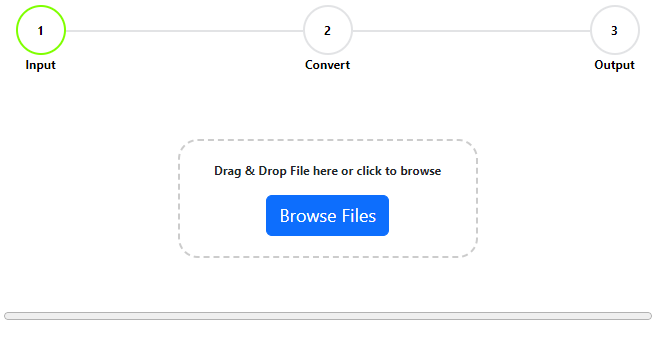Our guest today is Carly Morris of Geovation at Ordnance Survey, a London-based organization that provides resources for geotech and proptech startups. While Carly has minimal experience with GIS technology, she has plenty of background helping to seed successful startups. Having spent several years as the Head of Innovation with one of the world’s largest airline groups, she knows what it takes to help an idea take off. She has since shifted to supporting geospatial entrepreneurs in their early stages to enable future success.
Getting Help with Your Geospatial Startup
Building a startup from the ground up is no doubt an intimidating process, so it can be an excellent jumpstart to have specialized resources at hand when beginning such an adventure. There are organizations out there that exist to help startups in their early stages. It is less common for them to support geospatial startups in particular, but in the UK, Geovation has served this niche well.
A geospatial startup resource like Geovation can help by providing funding, guidance, and connections for blossoming business owners. Their accelerated program is a 12 month process. The first six months consist of hands on support, while the final six are more hands off. All along the way, founders and their teams maintain autonomy over decisions, but are directed to evaluate their moves critically to help set themselves up for the best possible outcome for their business as a whole.
Most organized resources for startups do not care what particular industry you are breaking into and will help you ramp up regardless, so if you are outside the UK, there are still great options. SCORE acts as, and provides, a holistic list of resources for entrepreneurs to reference. The US Small Business Administration website also acts as a hub for planning and financial resources for US-based small businesses. To round it out, Esri’s startup program provides ArcGIS software resources to new businesses that qualify if you demonstrate a desire for long-term commitment with them.
What Does a GIS Startup Need?
First and foremost, a startup needs to identify a problem that genuinely needs solving. This does not mean that no one else is trying to solve it, but the problem should be well-defined, prevalent and significant enough to justify a solution. A great way to understand need is to talk to the people with that problem. Find out what impacts them, and how. Collect data on if your proposed solution would work for their cases, and if they are willing to pay for it. Always keep an open mind and be willing to change course if your original hypothesis is off.
Commonly, entrepreneurs set out to create a new business once they have identified a gap in their industry. If someone else is already in this area, identify areas that could be improved upon, and make those changes to provide the superior product.
An essential element of building a great startup is having the right founder. The ideal founder will have a palpable passion for whatever problem they are trying to solve, even to the point of it being an obsession. This drive and enthusiasm will be necessary to help carry the young business through the inevitable lows that the team will encounter as it grows. There should be highs as well, but these inherently carry less risk and should only fuel the fire. A good startup founder should also be open to feedback. The right attitude and a willingness to learn and adapt is invaluable, and impossible to teach.
It is a common misconception that founders need to be highly technical people, and have intimate knowledge of every facet of their business. This is not the case. Startup founders come from a wide variety of backgrounds, and the best ones generally have stronger background and interest in the primary problem they are looking to solve over the technical skills to do it all themselves. The best leaders know how to delegate. For this reason, it is more important to be able to identify strong contenders for building their team, rather than carrying it all themselves.
Planning for a Startup’s Success
A wise man once said, “If you fail to plan, you are planning to fail”. This is equally true in the world of entrepreneurship. If you find that you hold the key qualities for being a great founder, and you have a problem you are fully dedicated to solving, it is time to start laying groundwork for your geospatial business.
A good first step is to create a value proposition canvas. A value proposition canvas is a tool to help better understand the needs of your customers, and how you might add value to their situation and ultimately help resolve their issue. Creating a VPC is not a terribly complicated process. Through the course of preparing one, you can discover gaps in your understanding and preparation, as well as realize questions you have not yet asked.
As is true for many situations, it is highly valuable to build and maintain a quality network of people that you can talk to and collaborate with. In the early stages of the startup, you can go to your cohort with ideas to solicit feedback. Open a discussion with a trusted individual or mentor to discuss your business plan. Give them chances to ask questions, and make special note of questions you had not considered so you can explore how to best answer them in the future as the stakes increase.
Working with location data is tricky business. Due to its highly sensitive nature, we must be on guard to put our best foot forward in enforcing best practices as far as ethics, and privacy. The Benchmark Initiative has developed The Locus Charter to help build global guidelines for this space.
When you are fresh on the startup scene, it is easy to feel like an imposter. If all of this is new, you probably are one. Lean into the opportunity for a unique perspective and explore your questions with those more experienced in the industry, and know when to take their advice.
Overall, some great advice for setting out with your startup-
- Make sure you have fallen in love with the problem you are looking to solve. Passion holds power.
- Once you have made the decision to get started, do something. Create the momentum that will help drive you throughout the process.
- Do not be afraid to ask for help. You cannot be expected to know all the answers, and that’s okay. Reach out to your network, and be open to insight.





